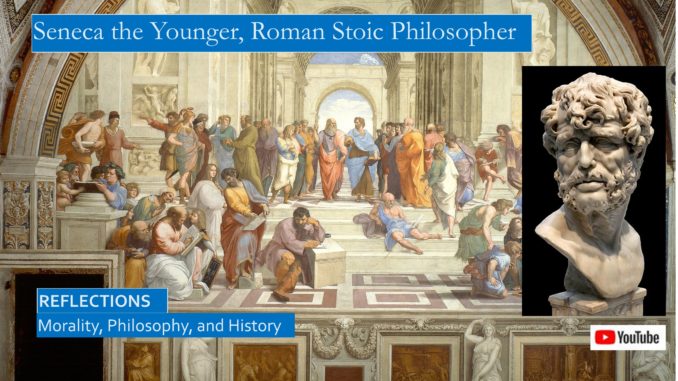
Seneca sounds like the desert Church Fathers when he writes: “Our too great love for our body makes us restless with fears, burdens us with cares, and exposes us to insults. Virtue is held too cheap by the man who counts his body too dear.” The Church Fathers teach us that we should discipline our body through fasting, prayer, and by limiting our sleep.
Letter XIV Withdrawing from the World
Seneca continues, “We should cherish the body with the greatest care; but we should also be prepared, when reason, self-respect, and duty demand the sacrifice, to deliver it even to the flames.” St Paul uses similar imagery in 1 Corinthians 13, where the man who delivers his body to the flames, but has not love, gains nothing. This calls to mind when Carthage was captured the Queen, rather than be shamed and chained into slavery, she cast herself and her children into the flames of Baal in the Temple, so in the ancient world, delivering your body to the flames is like making the ultimate sacrifice.[1]
Seneca Blog 1 http://www.seekingvirtueandwisdom.com/seneca-moral-epistles-blog-1-living-well-dying-well/
Letters XVI and XVII On Philosophy
We are a philosopher when we live the examined life, an unexamined life is not worth living. Seneca says that “philosophy encourages us to obey God cheerfully, philosophy teaches us to follow God and endure chance.” Whether chance brings blessings or sufferings, the Stoics encourage us to face life as it comes, for when suffering comes, the sufferings comes not because God is forsaking us, but by chance, but God will give us the strength to face our sufferings.
YouTube Video for blogs 1-3, which includes introductory material not in blogs: https://youtu.be/wgD8skYi3I0
YouTube script with more book links: https://www.slideshare.net/BruceStrom1/seneca-the-younger-roman-stoic-philosopher-short-biography-and-sayings
Philosophy is the study of wisdom, for as Seneca writes, “no man can live a happy life without the study of wisdom,” and “life is endurable even when we first begin our study of wisdom.” You must study philosophy every day, “you must persevere, you must develop new strength by continuous study, until that which is only a good inclination becomes a good habit.” “Philosophy molds and constructs the soul; it orders our life, guides our conduct, shows us what we should do and what we should leave undone; philosophy sits at the helm of our ship and directs our course as we waver amid the uncertainties of life. Without philosophy, no one can live fearlessly or in peace of mind. Countless occurrences every hour call for advice, and such advice is to be found in philosophy.”
Seneca advises that we should not fear poverty, for “riches have shut off many a man from the attainment of wisdom; poverty is unburdened and free from care.” This reminds us of Jesus in the Gospels warning us that it is easy for a rich man to enter heaven as it is for a camel to pass through the eye of the needle. Seneca’s words also remind us of Jesus preaching in the Sermon on the Mount, “Do not store up for yourselves treasures on earth, where moth and rust consume and where thieves break in and steal, but store up for yourselves treasures in heaven, where neither moth nor rust consumes and where thieves do not break in and steal. For where your treasure is, there your heart will be also.”[2]
Jesus exhorts that poverty of the poor in spirit is more a poverty in attitude than a lack of riches. Seneca echoes this when he says, “study of philosophy cannot be helpful unless you take pains to live simply; and living simply is voluntary poverty.” “You should not seek to lay up riches first (before studying philosophy); one may attain philosophy without even money for the journey.” Should you first seek riches, then philosophy? Seneca quotes Epicurus, ‘Riches has been for many men not an end to their troubles, but rather simply changes their worries.’ Again, Seneca states, “He alone is in kinship with God who has scorned wealth.”
To the ancient Greeks, to the ancient Romans, philosophy was not opposing religion, philosophy was the religion. The stoic philosophers usually speak of a singular God, sometimes labeling God as Zeus, the stoics rarely mention the other gods. You can easily posit that the Stoic philosophers helped prepare the way for Christianity, for if you simply substitute in the above paragraphs the word Christianity for philosophy, and study of Scriptures for study of philosophy, the meaning does not really change.[3]
Letter XXIII On the True Joy which comes from Philosophy
Seneca asks us, What should be the goal of the philosopher? “Above all, learn how to feel joy.”
What is joy? Seneca answers, “Real joy is a stern matter.” Real joy endures poverty, endures suffering, endures pain. Real joy is not idle laughter, real joy does not chase passing pleasures. “Pleasure, unless it is controlled, tends to rush headlong into the abyss of sorrow.” “The frail body, although we can accomplish nothing without it, should be considered as necessary rather than important. Our frail body involves us in vain pleasures, short-lived, and soon to be regretted, which unless are reined in by extreme self-control,” will doom us to a life of misery.
What is really good in life? What is really good in life “comes from a good conscience, from honorable purposes, from right actions, from contempt of the gifts of change, from an even and calm way of living which treads but one path.” You must live your life according to a guiding purpose, lest you let the trials of life sweep you along like a log floating down a swift river.[4]
What Seneca writes about penitence and reformation sounds like the early Eastern Church Fathers who followed him in history. He does not mention repentance or the word repentance here, and this is advantageous, because he is never interested in the apology, Seneca and the moral philosophers instruct us to live an examined life so we can improve our morals, so we can learn from our sins, so we can reform our lives. Seneca quotes Epicurus, “The knowledge of sin is the beginning of salvation.”
Seneca explains, “He who does not know that he has sinned does not desire correction; you must discover yourself in the wrong before you can reform yourself. Some boast of their faults. Do you think that the man has any thought of mending his ways who holds up his vices as if they were his virtues? Therefore, prove yourself guilty, hunt up charges against yourself. Play the part first of accuser, then of judge, last of intercessor. At times be harsh with yourself.”[5]
This echoes the prayer of St Ephrem,
O Lord and Master of my life,
grant me not a spirit of sloth, meddling, love of power, and idle talk.
But give to me, your servant,
a spirit of sober-mindedness, humility, patience, and love.
Yes, O Lord and King,
grant me to see my own faults and not to judge my brother,
since you are blessed to the ages of ages.
Many people are okay with change as long as the other person is the one who does the changing. Don’t we all want to find excuses for our faults and failings, but yet be critical of the faults and failings of our neighbor? Rather we should see to change our own attitudes and behavior, and seek to rationalize the faults and failings of others, seeing they are but prisoners of their past, bound in chains by years of bad habits and experiences.
Seneca writes in his letter on Conquering the Conqueror, “Philosophy bestows this boon upon us; it makes us joyful in the very sign of death, strong and brave no matter in what state the body may be, cheerful and never failing though the body fail us.” “A great accomplishment would be to depart calmly when the inevitable hour arrives.”[6] Stoicism in the face of death. “It is as foolish to fear death as to fear old age; for death follows old age precisely as old age follows youth. He who does not wish to die cannot have wished to live.” Well, maybe I not quite a stoic yet, as I don’t really wish to die, and we should be thankful for the medicine and science that enables us to live such long, productive lives with aspirin and glasses and fillings and surgeries. Indeed, if Seneca and Epictetus were alive today, they would encourage us to live a life of healthy moderation, eating healthy with moderate exercise, not foregoing our annual checkup from fear of diagnosis.
Seneca Blog 3 http://www.seekingvirtueandwisdom.com/seneca-moral-epistles-blog-3-loving-philosophy-loving-god-loving-our-neighbor/
[1] Seneca, “Moral Discourses,” in Stoic Six-Park – Meditations of Marcus Aurelius and More, translated by Richard Gummere, (Enhanced Media, 2014, first published 1925), Letter XIV, 239.
[2] https://www.biblegateway.com/passage/?search=Matthew+6%3A19-21&version=NRSVCE
[3] Seneca, Moral Discourses, Letters XVI and XVII, 244-249
[4] Seneca, Moral Discourses, Letter XXXIII, 258-259.
[5] Seneca, Moral Discourses, Letter XXVIII, 268-269
[6] Seneca, Moral Discourses, Letter XXX, 271

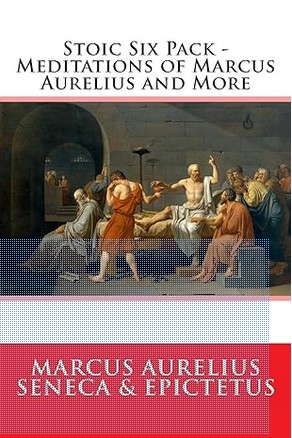
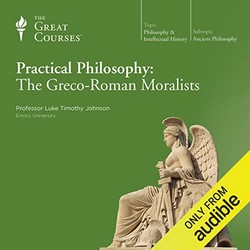
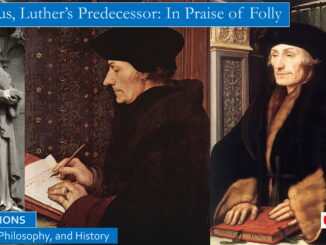
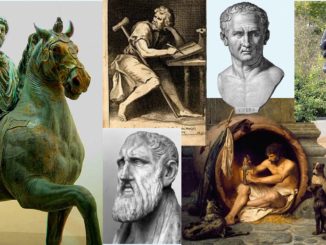
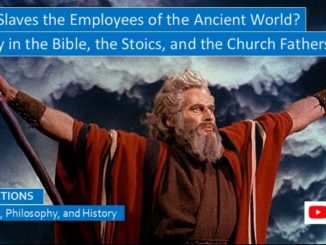
4 Trackbacks / Pingbacks